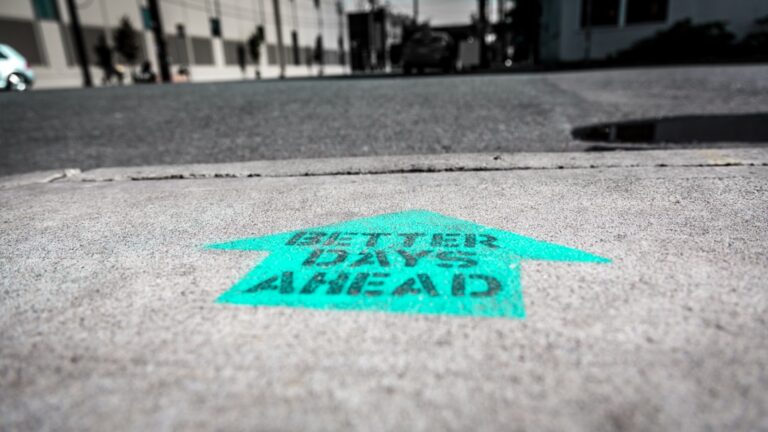
Do you ever feel like you're just drifting through life, reacting to whatever comes your way instead of steering your own ship? I’ve been there, stuck in cycles, feeling lost and without a clear direction. It’s a tough place to be, wondering if you'll ever truly find your path.
For years, I lived without a clear personal vision. I was pulled by instant gratification, falling into gaming addiction, binge eating, and just general laziness. I knew I wanted more, but the "what" and "how" felt so far away. Finding a personal vision isn't about having a perfect five-year plan. It’s about knowing what truly matters to you, what kind of life you want to build, and where you want your efforts to lead. It gives you purpose. It helps you make choices that serve your deepest desires, not just your fleeting urges. It’s about building a good existence, one intentional step at a time.
If you’re ready to start charting your own course, here are 10 tips that helped me, and I believe they can help you too.
1. Look Back to Look Forward
Before you can know where you're going, it helps to understand where you've been. Reflect on your past. What challenges did you overcome? What did you learn from them? For me, looking back at my journey of losing over 110 pounds taught me incredible resilience. Breaking free from gaming and unhealthy habits showed me my capacity for change. These experiences gave me confidence and clarity about what I don't want in my life and what I do value.
2. Uncover Your Deepest Values
What truly matters to you? What principles guide your decisions, even when no one is watching? When I started this work, I realized how much my Christian Orthodox faith shaped my core values. Things like love, service, humility, and striving for a closer relationship with God became my anchors. When you know your values, your vision becomes a natural extension of them. Ask yourself: what would you sacrifice for? What do you stand for?
3. Find Your Purpose in Faith
For me, developing a personal vision wasn't just about my own desires. It became about understanding God's purpose for me. I spent time in prayer, reading scripture, and talking with my spiritual father. I asked, "Lord, what do You want me to do with this life You’ve given me?" This shifted my perspective from purely self-focused goals to a broader understanding of my role in His plan. Your vision can find powerful purpose when connected to something greater than yourself.
4. Envision Your Best Life
This isn't about daydreaming. It’s about purposeful visualization. What does a healthy, purposeful day look like for you? How do you feel? What are you doing? After years of unhealthy habits, I started to picture myself waking up feeling energized, having quiet time for prayer, engaging in meaningful work, and sharing healthy meals. This clear mental image became a powerful motivator, helping me build a productive routine with short bursts of deep work.
5. Define Your "Why"
Once you have an idea of your vision, dig deeper into why you want it. Why is this important to you? My "why" for a healthy lifestyle wasn't just about looking better. It was about having more energy for my family, being a better steward of my body (a temple of the Holy Spirit), and having the strength to serve others. A strong "why" keeps you going when things get tough.
6. Break It Into Bites
A big vision can feel overwhelming. "Lose 110 pounds" felt impossible at first. But "lose 2 pounds this week" or "walk for 30 minutes today" felt doable. Break your grand vision into smaller, manageable steps. What's the very first, tiny action you can take this week? This makes progress feel achievable and keeps you from getting bogged down by the sheer size of your goal.
7. Celebrate Every Small Step
Momentum comes from recognition. Don't wait for the finish line to celebrate. When I first started my productive routine, I celebrated simply getting an hour of deep work done. When I avoided a binge or chose a healthy meal, I acknowledged that win. These small celebrations, combined with daily gratitude, build confidence and encourage you to keep going. They reinforce that you're moving in the right direction.
8. Build a Vision-Aligned Routine
Your daily habits are the building blocks of your vision. Do your routines support where you want to go? For me, this meant intentionally scheduling time for prayer, healthy meal prep, deep work, and regular exercise. It wasn't about being perfect. It was about creating a structure that naturally moved me towards my vision. What small adjustments can you make to your daily routine to better align with your vision?
9. Stay Flexible, Learn from Bumps
Life is unpredictable. There will be setbacks. There were times I slipped back into old habits, felt lazy, or struggled with my routine. But these aren't failures. They are learning opportunities. I learned to not beat myself up, but to ask, "What went wrong here? What can I do differently next time?" Then, I got back on track. A true vision helps you adapt without losing your way. It's a compass, not a rigid map.
10. Pray and Trust
Above all else, for me, personal vision is deeply connected to my Christian Orthodox faith. I pray for guidance. I ask for strength and discernment. I trust that God has a plan for me and that He will illuminate my path if I seek Him. When I feel uncertain, I lean on Him. This isn't about passively waiting; it’s about actively working towards my vision while constantly seeking His blessing and direction.
Developing a personal vision is a journey, not a destination. It’s an ongoing process of discovery, adjustment, and growth. You don’t need to have all the answers right now. Just start with one small step.
What's one thing you can do today to begin defining or refining your own personal vision?





